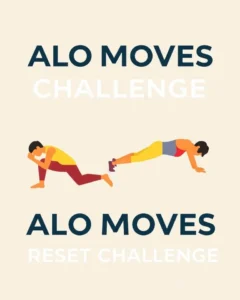Mental health is just as important as physical health, yet it often carries a stigma that prevents people from seeking help. The “Mind Over Miles” challenge is emerging as a powerful initiative to combat this stigma and promote mental well-being through physical activity and community engagement. These challenges create supportive environments where individuals can push their limits, share their stories, and contribute to an important cause.
What is the Mind Over Miles Challenge?
“Mind Over Miles” is more than just a fitness challenge; it’s a movement that brings people together to raise awareness and funds for mental health initiatives. It embodies the belief that physical activity and connection can break the stigma surrounding mental health conditions like depression and anxiety disorders.
These challenges typically involve activities like running, walking, biking, or even rollerblading, encouraging participants to move their bodies while supporting mental health awareness. Participants can choose their distance, pace, and whether to participate solo or as part of a team.
Key Aspects of Mind Over Miles Challenges
Several variations of the “Mind Over Miles” challenge exist, each with unique characteristics but sharing the common goal of promoting mental health awareness:
24-Hour Endurance Events
Some “Mind Over Miles” events are 24-hour endurance challenges where participants continuously run, walk, or move around a designated area, such as a park. These events symbolize the ongoing journey of mental health advocacy and resilience.
Step Challenges
Other versions focus on accumulating steps over a specific period, like a month. Participants track their steps using a step-tracking app and compete in teams, fostering a sense of community and encouraging daily movement.
5K Runs and 1M Walks
These events bring together runners, walkers, businesses, and community partners to support mental health services. They often include pre-race registration, t-shirts for participants, and awards for top finishers.
Strava Challenges
Online platforms like Strava host “Mind Over Miles” challenges where participants log a certain amount of activity (e.g., 60 minutes of running, walking, or jogging) within a specific timeframe. These challenges often offer incentives like discounts on athletic gear or chances to win prizes.
The Impact of Physical Activity on Mental Health
The “Mind Over Miles” challenge leverages the well-documented benefits of physical activity on mental health. Engaging in regular exercise can:
- Reduce Stress and Anxiety: Physical activity helps lower stress hormones and release endorphins, which have mood-boosting effects.
- Improve Mood: Exercise can alleviate symptoms of depression and anxiety, promoting a more positive outlook.
- Boost Confidence: Achieving fitness goals can enhance self-esteem and confidence.
- Enhance Cognitive Function: Physical activity improves blood flow to the brain, which can enhance cognitive function and mental clarity.
- Promote Better Sleep: Regular exercise can improve sleep quality, which is crucial for mental well-being.
Organizations Behind the Movement
Several organizations are actively involved in creating and promoting “Mind Over Miles” challenges:
- Mind Over Foundation: This nonprofit organization uses fitness as a tool for mental health awareness and suicide prevention. They fund mental health programs, outreach efforts, and community support initiatives.
- Mind (UK): This mental health charity organizes various campaigns and challenges, including “56 miles in February,” to raise awareness and funds for mental health services.
- Recovery Resources: This organization benefits from “Mind Over Miles” events, using the funds to provide prevention, treatment, and advocacy services for behavioral health and substance abuse.
- MCI Group: This company promotes employee well-being through “Mind Over Miles” step challenges, encouraging physical activity and team spirit.
How to Get Involved
There are many ways to participate in and support the “Mind Over Miles” movement:
- Register for an Event: Look for local “Mind Over Miles” events, such as 24-hour runs, 5K races, or step challenges, and sign up to participate.
- Donate: Support the cause by donating to organizations like the Mind Over Foundation or other mental health charities.
- Fundraise: Create a team and rally your community to raise funds for mental health initiatives.
- Spread Awareness: Use social media and other platforms to share information about “Mind Over Miles” and the importance of mental health.
- Start Your Own Challenge: Organize a “Mind Over Miles” challenge in your community, workplace, or school to promote physical activity and mental well-being.
- Join Online Communities: Participate in virtual “Mind Over Miles” challenges on platforms like Strava to connect with others and stay motivated.
Mental Health Campaigns Making a Difference
In addition to “Mind Over Miles,” several other campaigns are making a significant impact on mental health awareness:
- Spotify: Take a Beat: This campaign promotes the use of music for mental wellness, encouraging users to take mindful pauses with curated playlists designed to uplift and calm.
- ASICS: The Desk Break: This initiative encourages people to take short breaks from work to engage in physical activity and improve their mental well-being.
- Maybelline: Brave Together: This campaign supports those experiencing anxiety and depression by offering accessible resources and fostering a community where open conversations about mental health are encouraged.
- CALM: “30 seconds of silence”: This campaign uses moments of silence to raise awareness about mental health and encourage people to check in with themselves and others.
- WWF: Prescription for Nature: This campaign highlights the calming and restorative effects of spending time in nature on our minds, encouraging outdoor activities to alleviate stress and anxiety.
- Every Mind Matters: Run by NHS England, this campaign provides resources and advice for those facing mental health problems, featuring the mental health tool “My Mind Plan.”
- Unlock Loneliness: This campaign aims to raise awareness of loneliness in young people, provide tips to help cope, and advocate for government actions to tackle loneliness.
Overcoming the Stigma
One of the primary goals of “Mind Over Miles” and other mental health campaigns is to break down the stigma surrounding mental illness. By creating open and supportive environments, these initiatives encourage people to seek help without fear of judgment.
Creating Open Conversations
“Mind Over Miles” events provide a platform for people to share their stories and experiences with mental health challenges. These conversations help normalize mental illness and remind individuals that they are not alone.
Promoting Education and Awareness
By raising awareness about mental health, “Mind Over Miles” challenges help educate the public about the signs and symptoms of mental illness, as well as the resources available for support.
Encouraging Early Intervention
By promoting early intervention, “Mind Over Miles” challenges can help people seek treatment before their mental health conditions worsen. This can lead to better outcomes and improved quality of life.
The Future of Mind Over Miles
As awareness of the importance of mental health continues to grow, the “Mind Over Miles” challenge is poised to become even more popular and impactful. By expanding its reach and engaging more communities, this movement can help create a world where mental health is valued and supported.
Expanding Reach and Impact
To further its mission, “Mind Over Miles” can explore new avenues for growth:
- Partnering with Corporations: Collaborating with businesses to organize workplace challenges and promote employee well-being.
- Engaging Schools and Universities: Implementing “Mind Over Miles” programs in educational institutions to support student mental health.
- Utilizing Technology: Developing mobile apps and online platforms to track progress, connect participants, and provide mental health resources.
- Advocating for Policy Changes: Working with policymakers to improve access to mental health services and reduce stigma.
Measuring Success
To ensure its effectiveness, “Mind Over Miles” should track key metrics:
- Number of Participants: Monitoring the number of people involved in “Mind Over Miles” events and challenges.
- Funds Raised: Tracking the amount of money raised for mental health initiatives.
- Awareness Levels: Measuring changes in public awareness and attitudes towards mental health.
- Impact on Participants: Assessing the impact of “Mind Over Miles” on participants’ mental and physical well-being through surveys and feedback.
Conclusion
The “Mind Over Miles” challenge is a testament to the power of community, physical activity, and open conversation in promoting mental health awareness. By participating in these challenges, individuals can not only improve their own well-being but also contribute to a larger movement that is breaking down stigma and creating a more supportive world for those living with mental health conditions. As we continue to prioritize mental health, initiatives like “Mind Over Miles” will play a crucial role in fostering a culture of understanding, acceptance, and well-being.







